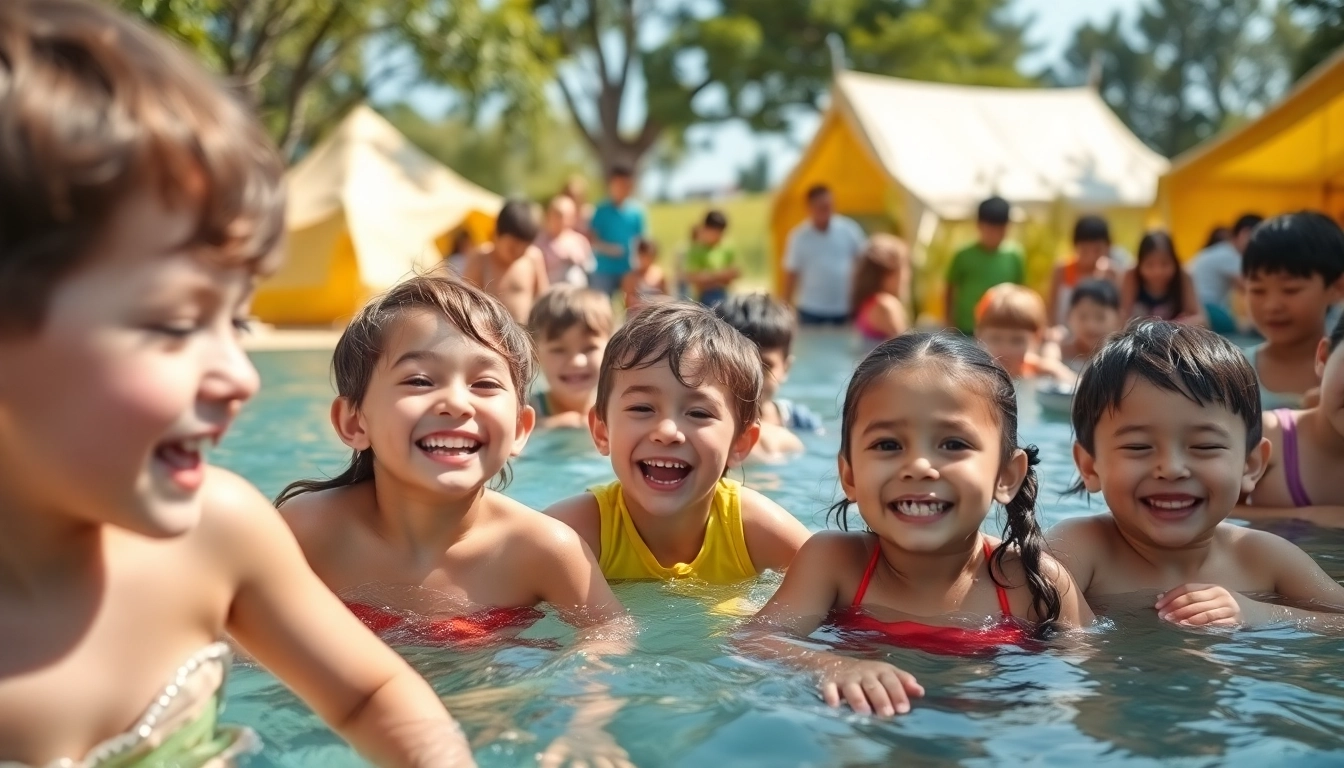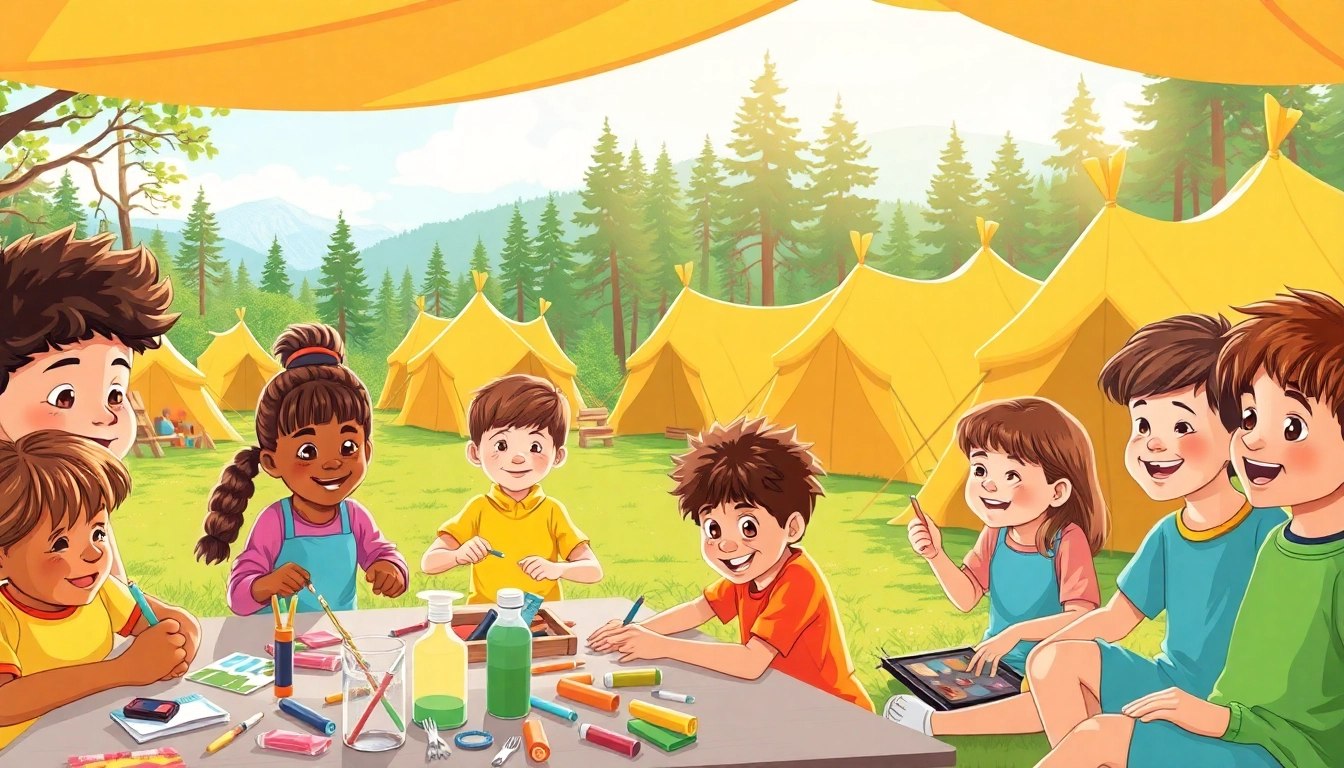Understanding Holiday Camps
What are Holiday Camps?
Holiday camps serve as a unique form of holiday accommodation popular in the United Kingdom, designed to provide a recreational retreat primarily for families and individuals. These camps encourage holidaymakers to enjoy everything on-site, including various facilities and entertainment options, without needing to venture far. Essentially, a holiday camp is a self-contained zone where guests can access lodging, meals, and an array of activities all within the camp’s boundaries.
One key feature that sets holiday camps apart from traditional accommodations is their comprehensive approach to guest entertainment. For instance, holiday camps typically offer programs that might include everything from guided tours to arts and crafts workshops, all fostering a community spirit among participants.
The History of Holiday Camps
Holiday camps have a rich history that dates back to the early 20th century. Initially, these camps were designed as economical holiday solutions for working-class families who could not afford traditional vacations. The concept gained significant popularity after World War II, particularly with the establishment of large camps such as Butlins, which offered entertainment and facilities catering to families.
Over the decades, holiday camps evolved to incorporate themes, catering to more specialized interests such as adventure sports, environmental consciousness, and educational experiences. This evolution reflects both societal changes and an ever-increasing demand for immersive experiences that provide both relaxation and personal growth opportunities.
Benefits of Attending Holiday Camps
The advantages of attending holiday camps are numerous. Here are some key benefits:
- Social Skills Development: Children interact with peers, fostering their social and communication skills in a supportive environment.
- Structured Activities: These camps provide organized activities that keep kids engaged, teaching them teamwork and responsibility.
- Outdoor Experiences: Holiday camps often feature outdoor adventures, encouraging children to connect with nature.
- Skill Acquisition: Many camps offer specialized programs, allowing participants to learn new skills, whether it’s sports, arts, or specific crafts.
Types of Holiday Camps
Day Camps vs. Overnight Camps
When considering holiday camps, it’s essential to understand the difference between day camps and overnight camps.
Day camps typically operate during daylight hours, allowing children to return home each evening. These camps cater to families looking for structured activities without the commitment of overnight stays, making them ideal for younger children or those who may have separation anxiety. They often include various daytime activities, educational workshops, arts and crafts, and sports.
On the other hand, overnight camps offer a residential experience, usually spanning several days to weeks. These camps encourage greater independence among children, who engage in a wider range of activities such as camping, hiking, or adventure sports. Overnights provide a full immersion experience where kids can bond with others and develop confidence while being away from home.
Specialized Holiday Camps
Specialized holiday camps focus on specific interests, providing children with the opportunity to delve deeper into their passions. These can range from sports, science, music, or art camps. For example, a cooking camp might immerse participants in culinary practices, teaching them not just recipes but also the role of nutrition.
Specialized camps can be a valuable stepping stone for children looking to explore future careers or hobbies, allowing them to engage with like-minded peers and mentors. This focus creates not just skill acquisition but also a sense of belonging and passion.
Adventure and Nature Camps
Adventure and nature camps are designed to immerse participants in outdoor experiences. They often include hiking, rock climbing, kayaking, and environmental education. These camps encourage kids to appreciate the natural world, learn survival skills, and strengthen their physical capabilities.
As children engage in outdoor activities, they not only improve their physical fitness but also develop a sense of teamwork and resilience. Nature camps often include educational components related to flora, fauna, and conservation, instilling a respect for the environment that can last a lifetime.
Choosing the Right Holiday Camp
Factors to Consider When Selecting a Camp
Choosing the right holiday camp can greatly influence a child’s experience. Here are essential factors to consider:
- Age Appropriateness: Different camps cater to various age ranges. Ensure the camp’s offerings align with your child’s age and maturity level.
- Interests and Skills: Identify your child’s interests. Specialized camps can be beneficial for honing specific skills (e.g., sports, arts, etc.).
- Location: Consider the camp’s location in terms of accessibility, safety, and overall environment.
- Cost: Evaluate your budget. Costs can vary widely, so knowing what’s available within your price range is crucial.
Comparing Camp Programs
Once you’ve outlined key factors, compare similar camps to understand the nuances of their programs. Key aspects to consider include:
- Syllabus: Review what activities are available, including daily schedules, and whether they fit your child’s interests.
- Instructor Qualifications: Higher qualified staff often translates to better training and supervision. Ensure instructors have relevant expertise.
- Camper-to-Staff Ratio: A lower ratio often indicates more personalized attention and safety for participants.
- Feedback: Research previous camper experiences. Look for reviews that specifically mention what children enjoyed or any concerns.
Reviews and Recommendations for Holiday Camps
Reading reviews and seeking recommendations from other parents can provide valuable insights into a camp’s quality and fit. Websites dedicated to camp comparisons can be instrumental, offering ratings and testimonials from past campers and their families.
Consider reaching out to local parent groups or online forums dedicated to children’s activities. Additionally, visiting potential camps can provide firsthand insight into the environment and offerings.
Activities Offered at Holiday Camps
Arts and Crafts
Arts and crafts are a staple of many holiday camps. These activities provide children with opportunities to explore their creative sides while developing fine motor skills. Crafts can range from simple projects like painting and drawing to more complex tasks such as pottery or woodworking.
Participating in artistic endeavors not only fosters creativity but also provides children with a sense of accomplishment as they create tangible products. Camps often culminate in exhibitions or showcases of campers’ works, boosting children’s confidence and social skills.
Sports and Outdoor Activities
Sports and outdoor activities are central to many holiday camps, promoting physical fitness and teamwork. Camps may offer a variety of sports, from traditional ones like soccer and basketball to adventurous pursuits such as rock climbing or kayaking.
Outdoor activities also help children develop essential life skills, including resilience, leadership, and cooperation. Engaging in team sports encourages camaraderie, fostering long-lasting friendships among campers.
Educational Components
Many holiday camps intertwine educational components within their recreational activities. For instance, science camps might offer workshops on ecology, whereas cooking camps can incorporate lessons on nutrition and food science.
These elements enrich the camper’s experience, not just during the holidays but also in their everyday lives. Education at camp can help to pique an interest in various subjects and inform future academic pursuits.
Safety and Health in Holiday Camps
Understanding Camp Regulations
Safety is a paramount consideration for any holiday camp. Regulatory bodies establish strict guidelines to ensure that camps maintain high standards of safety for children. These regulations cover aspects such as staff qualifications, camper ratios, facilities maintenance, and emergency procedures.
Before enrolling in a camp, parents should inquire about the camp’s adherence to these regulations and any relevant certifications. Understanding these protocols can provide peace of mind regarding your child’s safety while participating in camp activities.
Health and Safety Measures
In addition to regulatory requirements, camps implement various health and safety measures to protect children. This may include:
- First Aid Training: Staff should be trained in first aid and CPR to address potential injuries promptly.
- Health Screenings: Parents may be required to provide health documentation or screenings to ensure all children are fit for participation.
- Emergency Plans: Camps should have clear emergency protocols in place, including evacuation plans, weather contingencies, and communication strategies with parents.
Emergency Protocols for Child Safety
Emergency preparedness is integral to any camp environment. Parents should inquire about how camps plan for various emergencies, including medical incidents, natural disasters, or other potential crises.
Camps should communicate protocols regarding how they handle emergencies, keeping parents informed throughout the camp duration. By understanding a camp’s emergency response strategy, parents can ensure their children will be safe and cared for in unexpected scenarios.



